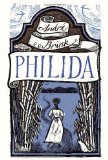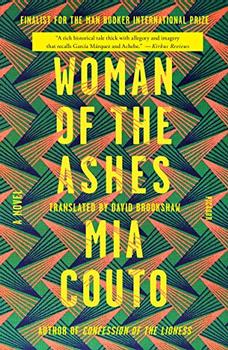Summary | Excerpt | Reading Guide | Reviews | Beyond the book | Read-Alikes | Genres & Themes | Author Bio

When done well, historical fiction not only transports readers to a different time and place, it also serves to inform and educate in a captivating way. By such a measure, Philida is done very well indeed. Part historical truth, part creative fiction, Philida was deservedly longlisted for the 2012 Man Booker Prize. With nuanced prose, the prolific South African author André Brink, brings to life a shameful time in our world's history, the history of slavery in South Africa. The impetus for this novel came from Brink's own family's connection to slavery and to the real Philida. Careful and detailed research resulted in this occasionally horrific, yet ultimately, hopeful, story of slavery set in the Cape region of South Africa in the early 1830s.
The story starts boldly: "Here come shit." As the book opens, Philida, a slave woman, has made a long journey on foot to the Office of the Slave Protector to file a complaint against Frans Brink, the son of Philida's owner, Cornelis Brink (in the afterword, the author mentions that he had a family connection to these Brinks). In what can only be described as an extremely complicated relationship, Frans has fathered four children with Philida and has repeatedly promised to secure her freedom. The Brink family owns a "wine farm," a winery, which is not doing well. Facing financial ruin, all hope is placed on Frans marrying the daughter from the very well-to-do Berrangé family. For this reason, Frans has broken his promise to Philida, who now faces being taken upcountry and sold at a slave auction. In an effort to somehow resolve the situation, she pins her hope on the Office of the Slave Protector.
Philida is a very strong woman who shows admirable grace and determination even as she endures horrendous treatment. She questions religion and the law and, in doing so, takes action, however limited it may be, for herself and the future of her children.
The events in Philida take place within a climate of change in South Africa. Talk of freedom for the slaves and rumors about the abolition of slavery abound. Some heavy themes - including slavery, race, gender, freedom, religion and love - are addressed. Each is large and ripe in its own right and skillfully woven through the novel. For example, freedom is represented in many ways, but it resonates most strongly for Philida in the simple idea of shoes: "Because he knew, as I knew, as the whole world know: the man or the woman with shoes on their feet, they cannot be slaves, they are free, shoes mean that they are not chickens or donkeys or pigs or dogs, they are people." Philida also possesses an innate understanding that her mind is free even though her body is the legal property of Cornelis Brink.
While this is primarily Philida's story, Brink uses multiple first-person narratives, with chapters alternating between Philida, Frans and Cornelis. The sections of the novel anchored in historical fact, are in third-person. The method of using multiple voices gives the reader a more complete look at life during this time. A family and a way of life on the precipice of change, are fully realized and believable through detailed and raw prose.
Even if Frans and Cornelis are not written to be likeable characters, we can come to see that the choices the men make are put in place by specific dictates either because of acceptable societal norms and pressures, or due to religious, financial or family obligations. None of these circumstances makes any of the atrocities meted out acceptable, but the perspectives are necessary and valuable.
Sometimes a stunning book comes along and, in my desire to do justice to both the author and the story, I struggle to write the review. How can I effectively convey the beauty and humanity in a novel that is also deeply hard to take at times? How can I persuade readers to take up a novel of historical fiction about a dark time in our history – a time many would rather forget? I suppose the best I can offer, and I don't mean to be melodramatic, is the idea that, at the core of Philida is a heroic woman, a real person who commands attention and respect in a way that is full of charm and hope. Philida deserves to be read, to live on in our memories and in our hearts. It is an emotional reading experience that feels vivid and true. The novel does everything great fiction should: it captures the imagination, takes us to another time and place, moves us viscerally, informs us and leaves us feeling the need to do better in this world. Philida is an important story. It is a physical and emotional journey and the momentum of Brink's narrative propels us forward with every amazing word.
![]() This review
first ran in the March 6, 2013
issue of BookBrowse Recommends.
This review
first ran in the March 6, 2013
issue of BookBrowse Recommends.

If you liked Philida, try these:

by David Brookshaw, Mia Couto
Published 2019
The first in a trilogy about the last emperor of southern Mozambique by one of Africa's most important writers.

by Paula McLain
Published 2016
The extraordinary adventures of a woman before her time, the exhilaration of freedom and its cost, and the tenacity of the human spirit.
Your guide toexceptional books
BookBrowse seeks out and recommends the best in contemporary fiction and nonfiction—books that not only engage and entertain but also deepen our understanding of ourselves and the world around us.